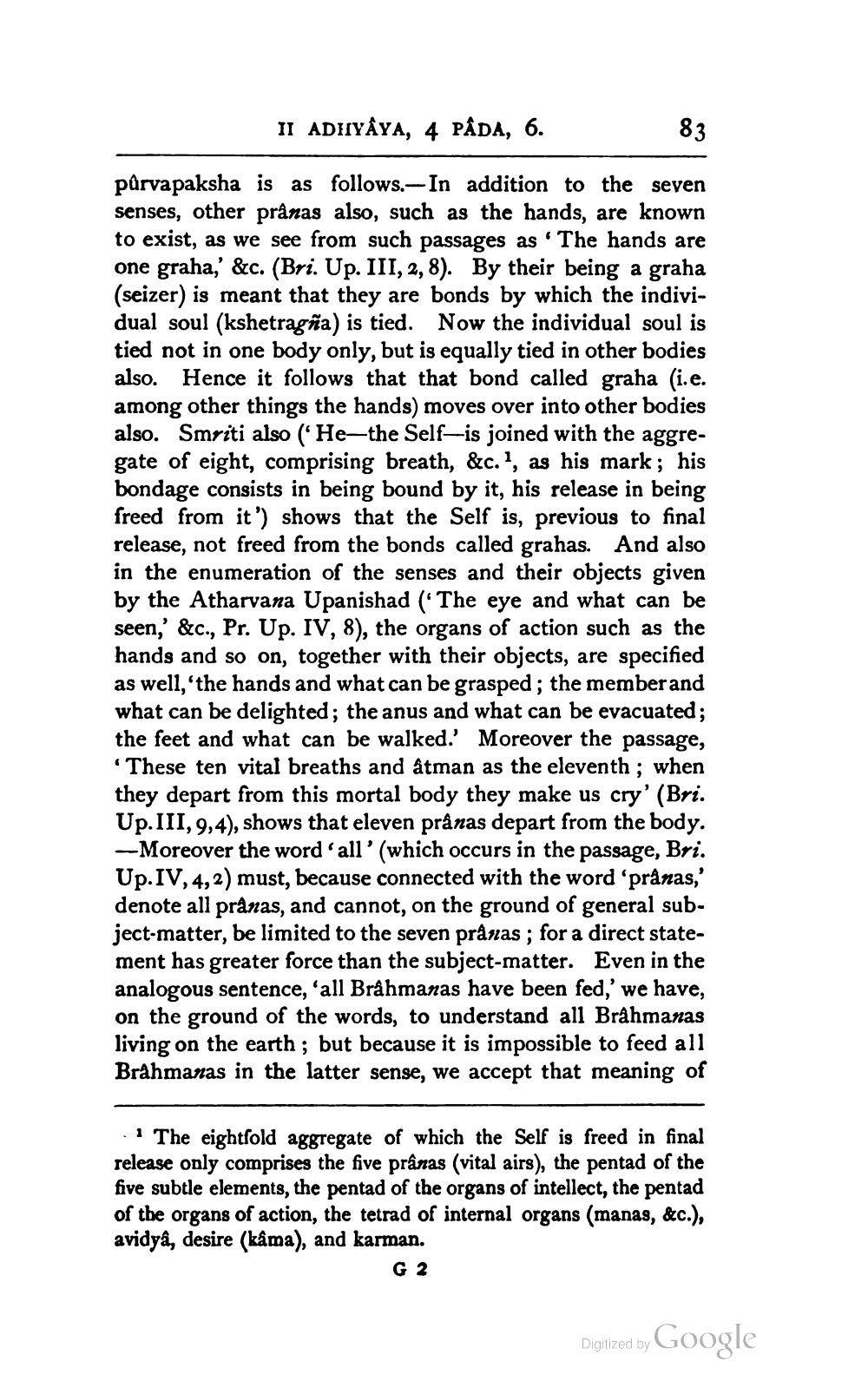________________
II ADHIYÂYA, 4 PÂDA, 6.
83
purvapaksha is as follows. In addition to the seven senses, other prânas also, such as the hands, are known to exist, as we see from such passages as 'The hands are one graha,' &c. (Bri. Up. III, 2, 8). By their being a graha (seizer) is meant that they are bonds by which the individual soul (kshetragña) is tied. Now the individual soul is tied not in one body only, but is equally tied in other bodies also. Hence it follows that that bond called graha (i.e. among other things the hands) moves over into other bodies also. Smriti also ('He-the Self-is joined with the aggregate of eight, comprising breath, &c. 1, as his mark; his bondage consists in being bound by it, his release in being freed from it') shows that the Self is, previous to final release, not freed from the bonds called grahas. And also in the enumeration of the senses and their objects given by the Atharvana Upanishad ('The eye and what can be seen,' &c., Pr. Up. IV, 8), the organs of action such as the hands and so on, together with their objects, are specified as well,'the hands and what can be grasped; the member and what can be delighted; the anus and what can be evacuated; the feet and what can be walked. Moreover the passage, 'These ten vital breaths and åtman as the eleventh ; when they depart from this mortal body they make us cry' (Bri. Up.III, 9,4), shows that eleven pränas depart from the body. - Moreover the word 'all'(which occurs in the passage, Bri. Up.IV,4,2) must, because connected with the word 'pranas,' denote all pranas, and cannot, on the ground of general subject-matter, be limited to the seven pranas; for a direct statement has greater force than the subject-matter. Even in the analogous sentence, 'all Bråhmanas have been fed,' we have, on the ground of the words, to understand all Brahmanas living on the earth; but because it is impossible to feed all Brahmanas in the latter sense, we accept that meaning of
.* The eightsold aggregate of which the Self is freed in final release only comprises the five pranas (vital airs), the pentad of the five subtle elements, the pentad of the organs of intellect, the pentad of the organs of action, the tetrad of internal organs (manas, &c.), avidya, desire (kama), and karman.
G 2
Digitized by
Digilzed by Google




